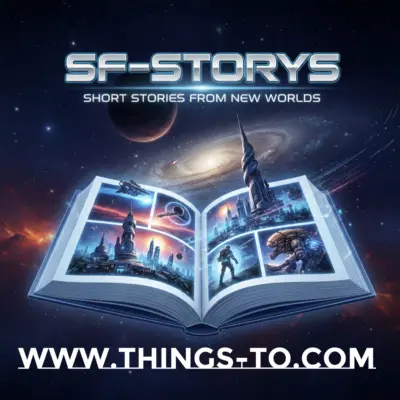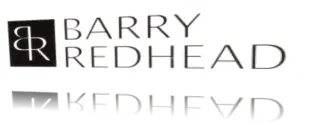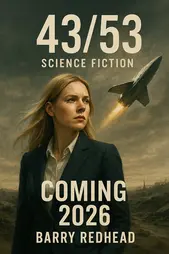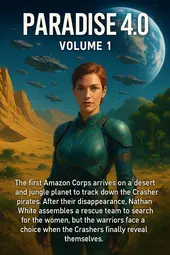You are visiting the safe Science Fiction website of Barry Redhead.
Click the Link to: Creative
Genesis & Authorship
Now here on www.Things-to.com
Science - Fiction Short Stories, Future Concepts & Speculative Worlds
Welcome to a future that feels uncomfortably close. This platform is dedicated to science fiction short stories, forward-thinking ideas, and the defining questions of tomorrow: artificial intelligence, emerging social systems, technological evolution, space exploration, human–machine boundaries, and the political as well as emotional consequences of a rapidly transforming world.
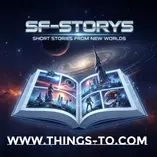
UFOs & UAP: Yes or No?
A Cinematic Deep Dive into the Mystery in Our Skies
Are UFOs real? Are UAP just a new name for the same phenomenon? And most importantly: Yes or No? My film clip “UFOS UAP – Yes or No” takes viewers straight into one of the most controversial and fascinating debates of our time. In an era where governments release classified footage and whistleblowers step forward, the question is no longer science fiction—it’s global discourse.
What Are UFOs and UAP?
For decades, the term UFO (Unidentified Flying Object) dominated pop culture, conspiracy theories, and late-night talk shows. Today, officials use the term UAP (Unidentified Aerial Phenomena) to describe unexplained objects or movements observed in the sky. The shift in terminology reflects a more serious and scientific approach. Agencies like the NASA and the U.S. Department of Defense have publicly acknowledged investigations into unidentified aerial encounters. But acknowledgment doesn’t equal confirmation.
The Evidence: Fact, Fiction, or Something In Between?
Why This Film Matters Now: Search interest for terms like UFO sightings 2026, UAP Pentagon report, and alien disclosure continues to surge. Audiences are no longer satisfied with tabloid speculation—they demand facts, transparency, and context. “UFOS UAP – Yes or No” captures this cultural moment. It doesn’t tell viewers what to think. Instead, it presents the question with cinematic tension, investigative pacing, and a sharp editorial lens.
Note on: UFO/UAP – YES OR NO
The debate surrounding the existence of extraterrestrial intelligence is reaching a new fever pitch. In this context, a recent statement by renowned filmmaker Dan Farah is causing a stir. Farah is convinced that a groundbreaking revelation is on the horizon: According to his information, evidence is mounting that Donald Trump may soon declassify the decades-old mystery surrounding the legendary 1947 Roswell incident. But that is not all: Farah also supports the explosive theory that the highly classified hangars of Area 51 are indeed concealing biological remains or even living extraterrestrial entities from the public eye. Is humanity ready for the answer? UFOs YES or NO? While the world speculates about leaks and secret hangars, this documentary asks the fundamental question of physical feasibility. Rooted in the immutable laws of our universe, the film provides evidence as to why physical contact with extraterrestrial civilizations is virtually impossible. The documentary explores the two greatest hurdles of interstellar travel:
- The Light Speed Barrier: The unfathomable distances between stars impose limits that even the most advanced technology can never overcome.
- The Time Barrier: The vast temporal gap between the development of two separate intelligences makes a synchronized encounter within the billions of years of galactic history statistically absolutely improbable.
- HYSTERIE: Furthermore, out of more than 25,000 UFO sightings reported over the last 50 years, more than half originated from the American Midwest. Logic alone dictates that extraterrestrials would not choose to land in the middle of nowhere just to abduct rural villagers—not to mention the absurd reports of abductees claiming to have had sexual encounters with aliens. It is all pure nonsense. 100 percent of the people reporting such sightings were either drunk, seeking attention, or were simply STUPID.
CLICK the Pic to watch the CLIP!



Here you’ll find regularly published SF short stories, insights into developing fictional universes, background articles on futuristic technologies, and thought experiments about humanity’s possible futures. The focus goes beyond spectacle, it’s about impact: How does technology reshape power? What remains of humanity in an optimized world? Can progress exist without moral cost? This site combines classic science fiction themes, space, advanced technology, alternative societies, with a grounded, contemporary perspective. The futures explored here are not distant fantasies; they are extensions of changes already underway. You can find more science fiction short stories in the Science Fiction Shorts section.
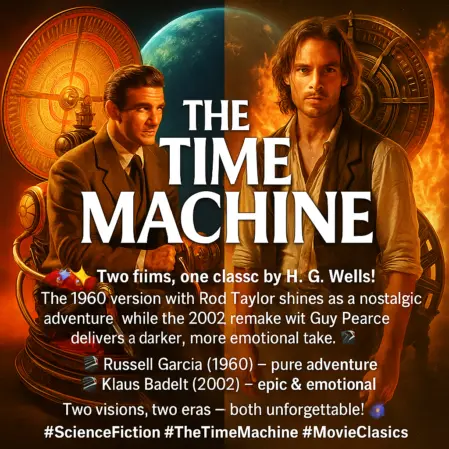
The Timemachine
The 1960 film by George Pal is considered one of the most significant science fiction classics today. The story follows the scientist George (Rod Taylor), who tells his friends about his invention on New Year's Eve 1899. He travels into the future, experiences world wars, and ultimately the atomic destruction of civilization in 1966. Finally, he lands in the year 802,701. There he meets the Eloi – a gentle but completely apathetic community – and their dark counterparts, the subterranean Morlocks, who keep the Eloi like livestock.
Directed by Simon Wells, the great-grandfather of the book's author, the story received a modern update. Here, the protagonist Alexander Hartdegen (Guy Pearce) is driven not just by scientific curiosity, but by personal trauma: he wants to undo the death of his fiancée. Since the past seems unchangeable, he travels to the future to find answers. Due to a catastrophe on the moon, he is also catapulted into the year 802,701.
Key Differences
While both films are based on the same premise, they differ in motivation and worldview:
- The Motivation: In the 1960 version, George is a classic Victorian explorer aiming to advance humanity through knowledge. In 2002, Alexander is a broken man fleeing his pain, finding a new purpose only after meeting the Eloi.
- The Society: The original reflects Cold War fears (sirens, atomic bunker instincts). The remake focuses more on ecological and technological hubris (the destruction of the moon through mining).
- The Morlocks: In 1960, they were hairy, blue-skinned monsters with glowing eyes – handmade horror. In 2002, thanks to CGI and makeup, they are more agile, threatening, and led by an "Uber-Morlock" (Jeremy Irons) who interacts intellectually with the time traveler.
The Heroes and Their Performance
Rod Taylor (1960): Taylor plays the hero with a mix of Victorian etiquette and physical presence. He is the "doer" who fights with fists and intellect for the freedom of the Eloi. His George radiates optimism and moral integrity – a classic hero of Hollywood's Golden Age. Guy Pearce (2002): Pearce delivers a significantly more nervous and vulnerable performance. His Alexander is an eccentric intellectual who only matures into a reluctant hero throughout the film. He appears more modern, tormented, and less certain in his role as a saviour, making him more relatable to a contemporary audience.
Qualitative Judgment & Audience Acceptance
- 1960 Version: It enjoys absolute cult status. The Oscar-winning special effects (like the time-lapse growing of flowers) have a magical quality that still inspires today. Audiences love the nostalgic charm and the clear moral message.
- 2002 Version: This film polarizes opinions. While the visual effects and set design (especially the time machine itself) are praised, many fans criticized the deviations from the original's philosophical depth in favor of action scenes in the final third. Nevertheless, it is often appreciated today as an underrated adventure film of the early 2000s.
Summary and Recommendation
Are both films worth watching? A clear yes!
The 1960 original is a must-see for any cinephile. It is a perfectly aged fairy tale about human nature. The 2002 remake, on the other hand, offers a visually stunning spectacle with a great soundtrack by Klaus Badelt and a charismatic villain.
Recommendation: Watch the original first to understand the roots of the genre and use the remake as an exciting "what-if" expansion with modern visual appeal.
🌌 Welcome to the Worlds of Paradise 4.0!
On the website www.Paradies40.de, we gradually open the archives of the planet Hope and its many colonies. In the sections “Worlds” and “Colonies,” you will find detailed descriptions of ecosystems, settlements, political structures, and environmental conditions within the Paradise-4.0 universe. These articles are part of the ongoing development of the Paradise 4.0 novel series and will be expanded continuously as new chapters and background materials are completed. Many texts are already available in English, making the site accessible to international readers. Visit: 👉 www.Paradies40.de – sections Worlds & Colonies - Now Online- Planet Earth
Here, the complete universe of Paradise 4.0 grows step by step. Enter the future. Discover new worlds. Experience the paradise—its light and its darkness.
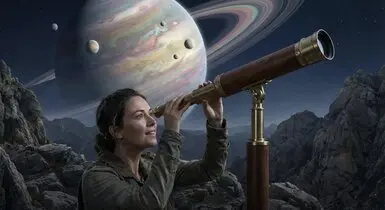
New Series: UFOs, UAPs – and Why There Will Be No Contact: Presented by Jolene Prendergast
A new series of articles on the topic of UFOs—now more commonly referred to as UAPs (Unidentified Aerial Phenomena)—will be launching on this website shortly. This series is not about sensationalism, myths, or modern legends, but about a sober, scientifically grounded assessment. It takes a clear position: There are no extraterrestrial visitors on Earth—and there never have been. Why? Watch the Teaser!

🚀 Upcoming Book Projects 2026–2027
The journey continues! Over the next two years, several new book projects are in development — a collection of powerful science fiction novels and thrillers that explore technology, humanity, and the boundaries of imagination. Each project has its own world, its own story — and its own vision of the future. Click on the book covers below to discover more about each title, including exclusive previews, concept art, and story insights. Stay tuned — new adventures are coming soon in 2026 and 2027! Stay Tuned For more Information please click one of the picture!
"Related Links: We have curated 3 external websites for you. Simply click the buttons below to be redirected to these additional resources."
For the MAJO - Marie-Josephine Youtube Channel and her great songs and videos, please click the picture. Three songs you can also hear on Spotify and other music cahnnels. Be sure to listen. Click her to her newest Song
